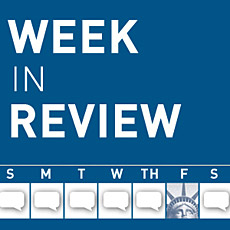
What school, abiding by the American Counseling Associationโs Code of Ethics, removed a student for refusing to counsel LGBT clients?
Who assaulted one of his students for wearing an LGBT t-shirt?
What list can you get on, but not off?
In which state is a law preventing kids from going to school, sick people from going to the hospital and victims from reporting crimes to the police?
What should the police have to do before attaching a GPS to your car?
Counselor to LGBT Kids: I Will Not Help You
The U.S. Court of Appeals for the Sixth Circuit heard arguments this week in Ward v. Wilbanks, a case where a graduate student, Julea Ward, is challenging her removal from Eastern Michigan University's counseling program because she refused to counsel lesbian, gay and bisexual clients on any issues relating to same-sex relationships during her clinical training. The student was training to become a school counselor. The issue is not whether EMU's students are entitled to their personal beliefs. They surely are. Rather, the issue is whether EMU may require those who enroll in its program to abide by the American Counseling Association's Code of Ethics, which forbids counselors from discriminating in their practice, or imposing their own values, attitudes and beliefs on their clients.
Tennessee Principal's Reaction to GSA T-Shirt Raises the Question: Who's Really Causing the Disruption Here?
Chris Sigler, a senior at Sequoyah High School in Madisonville, Tenn.wrote "Gay Straight Alliance: We've Got Your Back" on a T-shirt and wore it to school last Tuesday and Friday. Dozens of classmates signed. But Friday morning, Principal Maurice Moser told Chris that he could choose either to turn his shirt inside out, change shirts or get suspended. Chris ignored that, because he knew his shirt was fine under the Sequoyah dress code. Later, Moser charged into Chris's economics class, interrupted the students in the middle of taking a test and ordered everyone except Chris to leave. What happened next is a matter for the criminal justice system. But putting aside the assault and battery allegations against Moser, it's unconstitutional and totally inappropriate for a high school student to be punished for speaking his mind peacefully through the words on a T-shirt.
Watch Lists โ Easy to Get On, Impossible to Get Off
As if traveling weren't a hassle already (now even more so with invasive body scanners), imagine if your name were placed on a terrorist watch list. The lists are secret so the only way of knowing if you were on one of them would be to find out when, perhaps, you're already late to your flight and suddenly pulled out of line for extra screening โ or even denied boarding altogether. And there are no solid and trustworthy mechanisms to remedy mistaken identification and absolutely no way to remove your name from the list; the so-called "redress" process involves complaining to a government entity without authority to fix the problem and hoping that a faceless bureaucrat will correct a mistake or change his mind.
Shame on Alabama
Since Alabama's extreme anti-immigrant law has been in effect, the impact on communities across the state has been chilling. Parents are pulling their children out of school for fear of being forced to reveal their immigration status and some families are fleeing the state in order to avoid being separated from their children. According to an today, "1,988 Hispanic students were absent on Friday, about 5 percent of the entire Hispanic population of the school system." An immigrant services helpline reported that they had received over a 1,000 calls from people seeking assistance; some calls were from pregnant women afraid to go to the hospital, others from victims of crimes who now fear going to the police.
Tracked: The Supreme Court Shouldn't Let Technology Trump the Constitution
This week we filed a friend-of-the-court brief in United States v. Jones, which at The New York Times called "the most important Fourth Amendment case in a decade." We are asking the Supreme Court to hold that the government needs to establish probable cause and obtain a warrant before attaching a GPS device to a person's car and tracking their every move.
Learn more about your rights: Sign up for breaking news alerts, , and .

